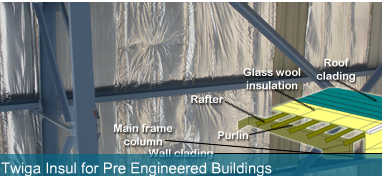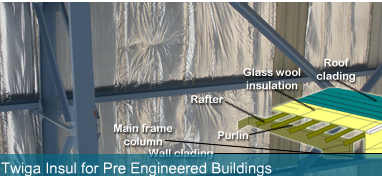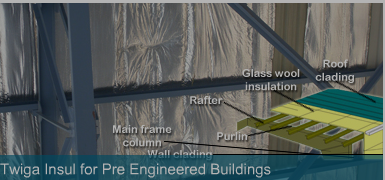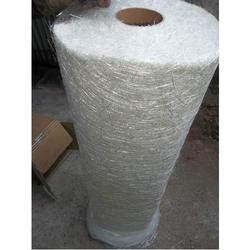A thermal insulation is the techniques of insulation which prevent heat moving from one place to another. India is known for pollution and for population. India is growing very fast but there are so many big buildings, industries and unstoppable traffic on roads so there is a big need of thermal insulation in India in each building for the comfortable ambiance. The purpose of thermal insulation in buildings is to maintain a comfortable and hygienic indoor climate at low different temperatures.
Thermal Insulation in India is an essential during construction of all Buildings which performs thermal insulation reduce heat transfer between to environments with different temperatures and perform many other functions.
Thermal insulation is required to protect the constructional elements against thermal impact and moisture damage. The main aim of thermal insulation is energy conservation leading to a decrease in heating demand and the protection of the environment which is the aim of thermal insulation in India of new buildings as well as in renovating the buildings.
Due to all this factors in India where the temp. raises in summer and in winter it falls so there is need of Thermal insulation which reduces the heat transfer between objects in thermal contact or in range of radiative influence.In industries, energy has to be expended to raise, lower, maintain the temperature of objects or process fluids. If these are not insulated, this increases the energy requirements of a process, and therefore the cost and environmental impact.
Due to all this factors in India where the temp. raises in summer and in winter it falls so there is need of Thermal insulation which reduces the heat transfer between objects in thermal contact or in range of radiative influence.In industries, energy has to be expended to raise, lower, maintain the temperature of objects or process fluids. If these are not insulated, this increases the energy requirements of a process, and therefore the cost and environmental impact.
Thermal Insulation in India is an essential during construction of all Buildings which performs thermal insulation reduce heat transfer between to environments with different temperatures and perform many other functions.
- Energy Conservation: Reduces the heating or cooling load
- Human Comfort: Improves the efficiency of the workmen in buildings depends upon the proper design of Heating or Cooling equipment. Efficient operation of these depends on the effectiveness of the Thermal Insulation.
- Reduce heat loss or heat gain to achieve energy conservation.
- Protect the environment through the reduction of Carbon dioxide and greenhouse gases.
- Control surface temperatures for personnel and equipment protection.
- Control the temperature of commercial and industrial processes.
- Prevent condensation on surfaces.
- Increase operating efficiency of heating, ventilation, cooling, plumbing, steam, process and power systems.
- Prevent damage from exposure to fire or corrosive atmospheres.
- Reduce noise from mechanical systems.
- Durability - resistance to degradation from compression, moisture, decomposition, etc.










